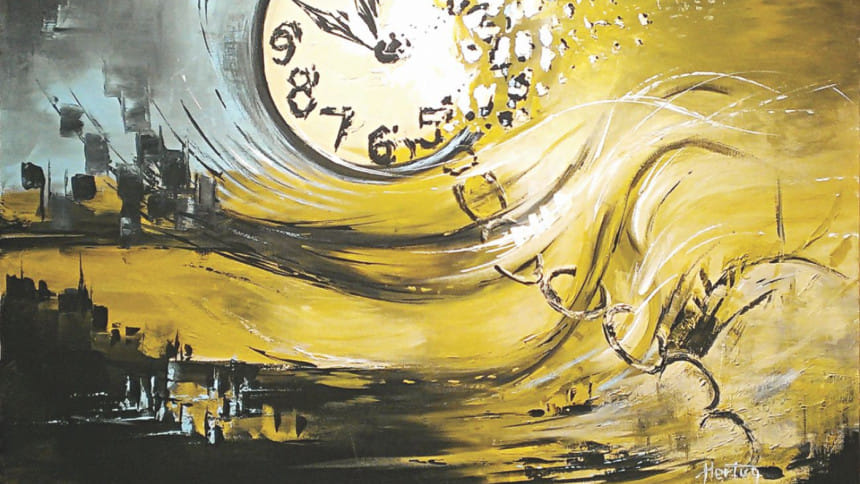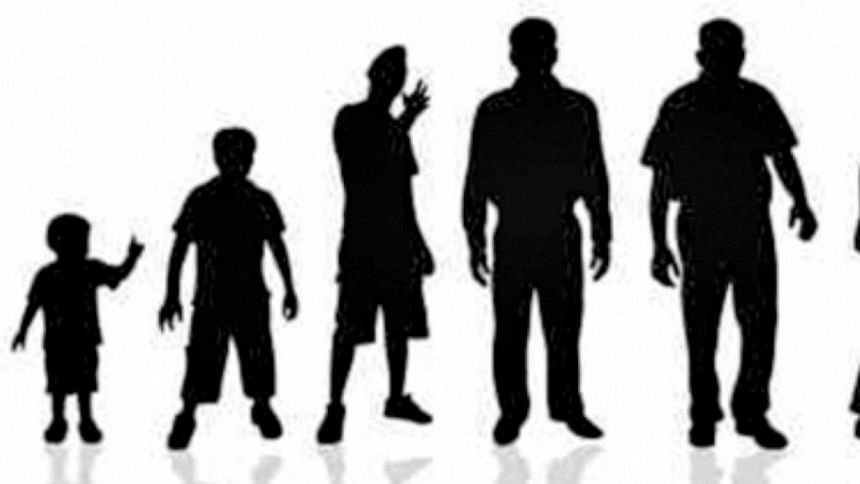Why Do We Age?

Darwinian evolution is the game of leaving as many copies of yourself as possible in your lifetime. This task would be a lot easier surely if our lifetime never ended. The organism that could live forever while constantly reproducing would be the ultimate creature, a Darwinian Demon. But then why is it that as time passes, we get weaker? Why does our hair start to fall out and our muscles sag, leaving us to lament a wasted youth? Why, in fact, do we age?
A big stop sign on the road to immortality is the fact that resources are limited. This is true for most organisms, and human beings are no exception. Lipids and proteins that make up our cells, as well as the blueprints for making those proteins, DNA, are inevitably damaged by reactive chemicals. In order to achieve immortality, it is necessary to repair this damage and stop the body from degenerating, but such repairs are highly resource intensive. And the more resources we put into maintenance the less there is to put into reproduction and this where our quest for immortality comes to a halt. Living for longer gives one more time to reproduce but the very act of living longer reduces your reproductive output, and vice versa. These irreconcilable goals lead to most organisms to reach a compromise, and therefore a mortal life. (See immortal jellyfish for a possible exception)
But biological immortality is a long shot even in a world where resources are unlimited. For, while it is possible to keep renewing your body forever, mortality can manifest itself through external means. Perhaps you'd be taken by disease, perhaps you'd be killed in war or be taken as food by another species, perhaps you're very clumsy and would fall off a cliff. The likelihood of being killed by these external sources of mortality cumulatively increases with time to the point that beyond a certain age you are almost certain to be dead. And since being killed stops you from reproducing anyway, intrinsic decline of the body beyond this age ceases to be a factor.A mutation that leads to bodily degeneration after the vast majority of a population have kicked the bucket is then irrelevant to natural selection.

An extension of this concept is the idea of pleiotropic genes. These genes affect multiple traits at once. Such a gene might improve our reproductive output early in life but lead to deterioration later on. Since it gets more and more likely that we will die through external means as more time passes, it is a good idea to skew lifetime performance towards early life when one is likely to be alive instead of saving up for a time you might not live to see. Therefore those with such a gene will, on average, be more successful than those without it. Through pleiotropy, degeneration of the body over time can be something that natural selection is promoting, rather than trying to get rid of.
Our mortality is a necessary cost of life's ultimate goal: reproduction. When it comes to fitness it might be best to live fast and die young.
Ref: Ricklefs RE. 2008.The evolution of senescence from a comparative perspective. Functional Ecology 22: 379-392
Aadiyat is an aspiring biologist and is consequently terrified of social interaction in every form. Please don't contact him at [email protected]

 For all latest news, follow The Daily Star's Google News channel.
For all latest news, follow The Daily Star's Google News channel. 




Comments